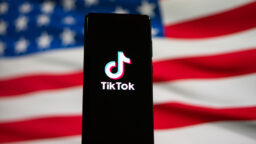A lawsuit filed by lyrics platform Genius against Google last year accusing the tech giant of “unethical, unfair and anticompetitive” behaviour was dismissed by a Federal Judge in New York on Monday (August 10).
Genius claimed in its suit that “Defendants Google LLC and LyricFind have been caught red-handed misappropriating content from Genius’s website, which they have exploited—and continue to exploit—for their own financial benefit and to Genius’s financial detriment”.
According to Federal Judge Margo K. Brodie, at the centre of the decision to direct the court to close the case was that Genius’s “claim is preempted by the Copyright Act because, at its core” the company is accusing Google of “misappropriating content from its website” i.e. reproducing its work.
However, Genius didn’t actually sue Google for copyright infringement, because it doesn’t own the rights to the lyrics. Publishers and songwriters do.
Writing in Monday’s court order, obtained by MBW, and which you can read in full here, Federal Judge Brodie said that Genius’ “argument is, in essence, that it has created a derivative work of the original lyrics in applying its own labor and resources to transcribe the lyrics, and thus, retains some ownership over and has rights in the transcriptions distinct from the exclusive rights of the copyright owners.
“Plaintiff likely makes this argument without explicitly referring to the lyrics transcriptions as derivative works because the case law is clear that only the original copyright owner has exclusive rights to authorize derivative works.”
This all started in June last year when Genius alleged that it was losing traffic to its site because its lyrics were being copied, and then published by Google via the latter firm’s lyrics partner, LyricFind.
The allegations were made public in a Wall Street Journal article, in which Genius claimed that it caught Google stealing its lyrics by inserting a sequence of punctuation that spelled out “Red Handed” when converted to Morse code.
LyricFind then addressed the allegations in a blog post, also in June 2019, in which it conceded that its team may have “unknowingly” taken lyrics from a source that originally copied them from Genius.
The company added that it “offered to remove any lyrics Genius felt had originated from them, even though we did not source them from Genius’ site”.
Genius then filed a lawsuit in New York in December that sought “no less than $50 million” in “combined minimum damages” from both Google and Canada-based LyricFind.
“Plaintiff likely makes this argument without explicitly referring to the lyrics transcriptions as derivative works because the case law is clear that only the original copyright owner has exclusive rights to authorize derivative works.”
Judge Margo K. Brodie
Continued Judge Brodie: “Even accepting the argument that Plaintiff has added a separate and distinct value to the lyrics by transcribing them such that the lyrics are essentially derivative works, because Plaintiff does not allege that it received an assignment of the copyright owners’ rights in the lyrics displayed on its website,
“Plaintiff’s allegations that Defendants “scraped” and used their lyrics for profit amount to allegations that Defendants made unauthorized reproductions of Plaintiff’s lyric transcriptions and profited off of those unauthorized reproductions, which is behavior that falls under federal copyright law.”Music Business Worldwide




